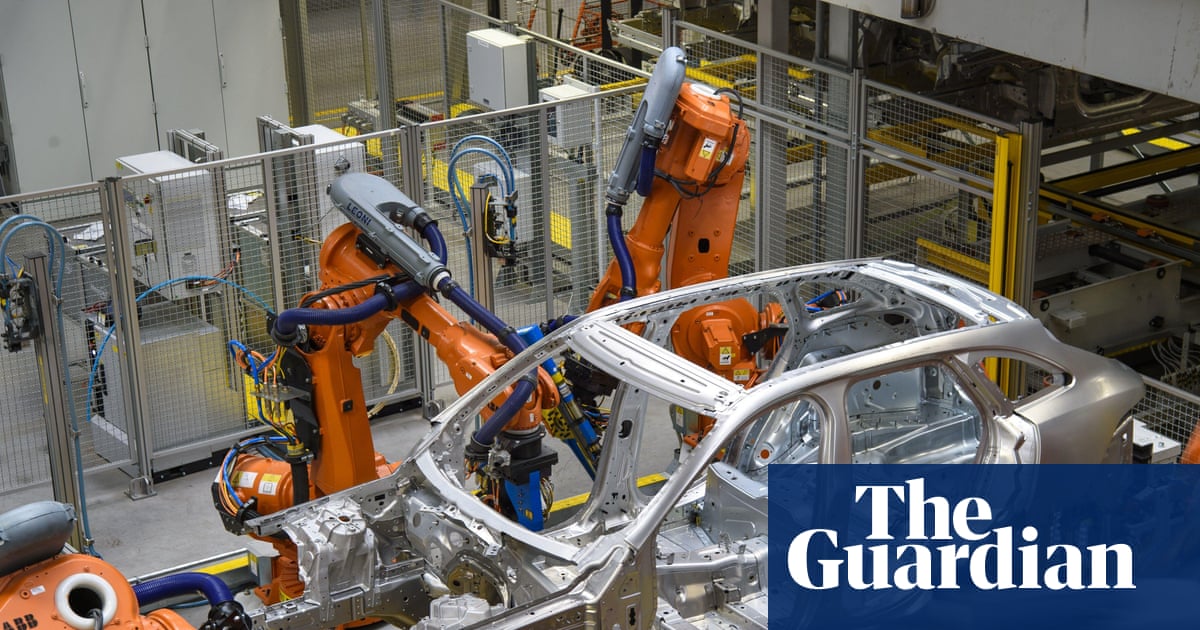More than 15 years later, Jennifer’s Body continues to pack a punch for its intended audience, and director Karyn Kusama is grateful for the film’s cult status.
After writer Diablo Cody expressed interest in making a sequel, Deadline…

More than 15 years later, Jennifer’s Body continues to pack a punch for its intended audience, and director Karyn Kusama is grateful for the film’s cult status.
After writer Diablo Cody expressed interest in making a sequel, Deadline…


The Booker prize foundation has launched a major new literary award, the Children’s Booker prize, offering £50,000 for the best fiction written for readers aged eight to 12.
The new award will launch in 2026, with the first winner announced in…

Unlock the Editor’s Digest for free
Roula Khalaf, Editor of the FT, selects her favourite stories in this weekly newsletter.
Lily Allen is, perhaps above all, open. In her 2018 memoir My Thoughts Exactly, she writes about, in no particular order:…

Max Verstappen knows full well that he and Red Bull will “need to be perfect” from this weekend’s Mexico City Grand Prix to the season finale in Abu Dhabi if he is to beat McLaren rivals Oscar Piastri and Lando Norris to the title.
Continue Reading

Car production in British factories slumped in September to the lowest level for the month since 1952 after Jaguar Land Rover was hit by an unprecedented cyber-attack.
JLR, Britain’s largest automotive employer, was forced to shut down all its computer systems at the start of September and was unable to make another car until early October.
That contributed to a 27% slump in total UK car production in September compared with the same month a year earlier, according to the Society of Motor Manufacturers and Traders (SMMT), a lobby group.
Car output dropped to 51,100, from 70,000 in September 2024, while output for the first nine months of the year was down by 8%. Van production has also slumped by nearly 40% so far this year, after the closure by the Vauxhall owner Stellantis of its factory in Luton.
“September’s performance comes as no surprise given the total loss of production at Britain’s biggest automotive employer after a cyber incident,” said Mike Hawes, the SMMT’s chief executive. “While the situation has improved, the sector remains under immense pressure.”
Automotive industry bosses and workers had been talking for more than a year of a “low-volume crisis” afflicting the sector, even before the JLR hack. The global automotive industry is under pressure in part because of a huge increase in competition from China and the need to invest in upgrading factories to produce electric cars. At the same time, higher interest rates and inflation have dented consumer appetite for new cars.
The JLR hack added to the industry’s woes. The Cyber Monitoring Centre, a non-profit group, this week estimated that it has been the most costly hack in British history because of its widespread effects on the UK supply chain. The group estimated costs to the UK economy of about £1.9bn.
Suppliers have been able to restart work as JLR goes through the careful job of ramping up demand and avoiding further costly disruption. One manufacturing executive said the ramp-up has gone better than expected, thanks in part to planning done earlier by JLR in partnership with larger suppliers.
The car industry is also bracing for further disruption if a Dutch government takeover of the Chinese-owned chipmaker Nexperia affects supply. Germany’s car industry this week warned that “the situation could lead to considerable production restrictions in the near future”, after China retaliated by banning exports of finished products.
The sales slump has driven the UK industry into repeated – and unwanted – comparisons with the 1950s, when British citizens still faced rationing after the second world war and the UK market was dominated by the British Motor Corporation, formed from the merger of Austin and Morris.